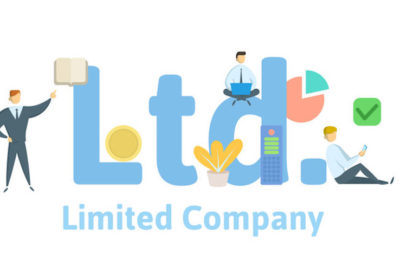If you’ve been keeping your eye on the now defunct Renters (Reform) Bill, you’ll know one aim was to introduce a compulsory landlord register in England. This has now been superseded by the Renters Rights Bill which is steadily making its way through parliament.
The previous government had planned for a Property Portal in the old Renters Reform Bill. If you are a landlord, you would have had to register yourself. If you didn’t and you then marketed or let out a property, you could face penalties. First-time fines were to be as high as £5,000. If you repeatedly marketed or let properties without registering – or you supplied fraudulent information to the portal – then intention was that you could be fined up to £30,000, be prosecuted or face a Banning Order.
Although these plans fell away following the change of government in July 2024, the new Renters Rights Bill also makes provision for the introduction of a Private Rented Sector Landlords Database. All Landlords will be required to register their properties and tenancies so really nothing much has changed. More details of the penalties for failing to comply are to follow.
Tenants and the landlord database
The new database will not be simply for landlords. Prospective tenants will be able to access information about a landlord’s identity and details of the property, along with certain details of any offenses.
The idea behind this is to help eradicate rogue landlords and ensure that registered landlords don’t let out poor quality and non-compliant properties. Crucially, if you market a property and a potential tenant discovers you are not on the register, they could make a complaint. If this happens, expect a fine.
HMRC and the landlord database
When it does see the light of day, the proposed landlord database will be a hugely valuable resource for the taxman. Currently HMRC is cracking down on landlords who don’t declare their rental income (or haven’t declared it correctly). It’s using many methods to do this. For example, HMRC routinely scours Land Registry records for evidence of people owning more than one property. It also uses the hugely powerful HMRC Connect system to analyse billions of items of data, ranging from bank and credit card records through to social media profiles and activity on online platforms such as Airbnb.
Once a landlord database is live, HMRC will almost certainly ramp up investigations into landlords tax affairs. Because it will be almost impossible to rent out a property without registering, people who have been letting out homes without declaring the income will have to register. HMRC will almost certainly investigate many of these ‘new’ landlords.
Also, if a landlord doesn’t register, there’s a very strong chance that they’ll be reported. If this happens, it’s highly likely to bring your affairs to the taxman’s attention.
Nowhere to hide
The key thing to remember about a landlord database is that there’ll be almost nowhere for landlords to hide if they don’t declare their rental income.
If you haven’t declared your income, HMRC can slap you with a penalty of 100% of all unpaid liabilities. This is on top of all the tax you owe, plus interest. In some cases, HMRC can investigate your financial affairs back over the last 20 years.
How to avoid a landlord tax investigation
If you have been letting out property without correctly declaring your income, the proposed landlord registration scheme means it’s a smart move to regularise your tax affairs now. We strongly recommend you do this via HMRC’s Let Property Campaign.
You can find full details of the campaign here. In a nutshell, if you use the campaign to make a full disclosure of your rental income, you’ll face significantly lower penalties. If you took reasonable care over your Self-assessment Tax Return, you’ll have to pay what you owe for a maximum of four years. If you didn’t take reasonable care you’ll be liable for up to six years. People who deliberately misled HMRC will have to pay tax for up to a maximum of twenty years.
How can I take part in the Let Property Campaign?
To take part in the Let Property Campaign, you need to:
- Notify HMRC you want to take part
- Tell HMRC about all undisclosed income
- Make a formal offer
- Pay what you owe
- Give HMRC any information it needs
While you can do all these things yourself, we’d strongly recommend using a good accountant such as THP. We’re experienced at dealing with HMRC, and can make sure your financial information is accurate and negotiate the best deal we can for you.
Whichever route you take, our advice is to act soon. The Let Property Campaign won’t be open for ever, and if it’s withdrawn before a landlord database is launched, a lot of people will be facing very expensive tax bills!
About Jon Pryse-Jones
Since joining THP in 1978, Jon Pryse-Jones has been hands on with every area of the business. Now specialising in strategy, business planning, and marketing, Jon remains at the forefront of the growth and development at THP.
An ideas man, Jon enjoys getting the most out of all situations, “I act as a catalyst for creative people and encourage them to think outside the box,” he says, “and I’m not afraid of being confrontational. It often leads to a better result for THP and its clients.”
Jon’s appreciation for THP extends to his fellow team members and the board. “They really know how to run a successful business,” he says. He’s keen on IT and systems development as critical to success, and he continues to guide THP to be at the cutting edge and effective.
Read more about Jon Pryse-Jones More posts by Jon Pryse-Jones











